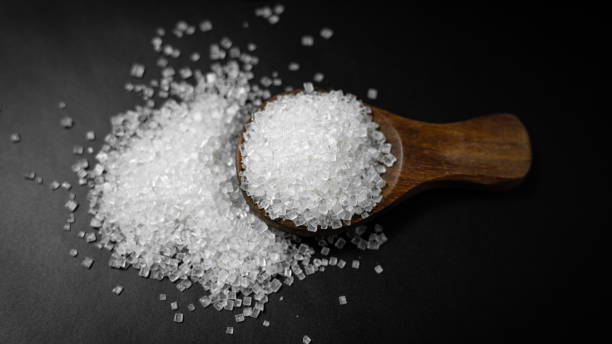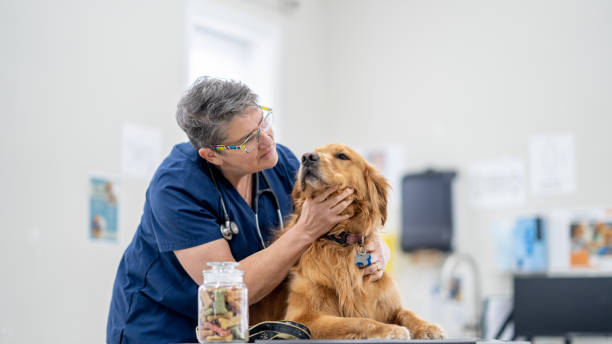Can Dogs Eat Corn Flakes? When it comes to feeding our furry companions, pet owners often question whether certain human foods are safe for dogs. One such query is: Can dogs eat corn flakes? With corn flakes being a common breakfast staple in many households, it’s not surprising that some pet owners consider sharing them with their dogs. However, while corn flakes might seem harmless, there are several factors to consider before making them part of your dog’s diet.
What Are Corn Flakes?

Corn flakes are breakfast cereals consisting of milled corn (maize), sugar, and malt flavoring invariably added to the cereal. They are ground into fine or coarse flakes to produce toasted foods that are easy to prepare and incredibly crunchy, making them ideal for breakfast. Indeed, cornflakes are a low-fat, easy-to-digest food for man but the question to be asked is: Are they equally good for dogs?
Nutritional Profile of Corn Flakes
To address the question of whether dogs can eat cornflakes, it first pays to take a cursory glance at their nutrient composition. Here’s a breakdown of what you typically find in 100 grams of cornflakes:
| Nutrient | Amount per 100g |
|---|---|
| Calories | 357 kcal |
| Carbohydrates | 84 g |
| Sugars | 8 g |
| Fiber | 3 g |
| Protein | 8 g |
| Fat | 0.4 g |
| Sodium | 729 mg |
| Vitamins (B6, B12) | Trace amounts |
From this table, it is clearly evident that cornflakes are very rich in Carbohydrates while also having a moderate quantity of sugar and sodium. Although these ingredients are consumable by human beings in small amounts, they can cause a particular risk to dogs of other factors.
Can Dogs Eat Corn Flakes?
The short answer to this question is: Yes, cornflakes aren’t poisonous to your dogs but there are numerous conditions to this statement. Cornflakes are not poisonous to the dogs, in fact, consuming a bowl of cornflakes is unlikely to have adverse effects on your dog. However, they do not supply the nutrients your dog requires and should not be applied as the main meal or a daily treat.
Now, let’s take a closer look at why cornflakes are inadvisable for dogs and what health issues are connected to this type of cereal.
The Risks of Feeding Corn Flakes to Dogs

- High Sugar Content
Corn flakes, which are the basis for many breakfast foods, may appear to be an innocuous and flavorless cereal, but they can be sweetened with sugar. A high-sugar diet has many effects on the health of a dog and is attributed to many problems like obesity, diabetes, and dental diseases. Unfortunately, canines metabolize sugars in a different way than say, a human, and just one serving can alter their future health for the worse. Corn flakes, as they are not very savory, contain sugars, which are inappropriate for dogs to have. - Excessive Sodium
- Sodium, on the other hand, is in moderate to high concentrations in cornflakes and while dogs require sodium in their diets, they require it in far smaller quantities than humans. Excess sodium presents a problem for dogs because it causes dehydration, and problems with the kidneys and can lead to salt poisoning if taken to the extreme. Although taking a handful every once in a while may not pose harm, regularly consuming cornflakes may lead to some other health issues.
- Lack of Nutritional Value
Protein, fats, vitamins, and minerals are needed in proper amounts for that, dogs also have their own distinct nutritional requirements. Corn flakes are full of carbohydrates, other than all the nutrition a dog might need, they do not offer much at all. By feeding your dog corn flakes as a snack regularly, you may find that your pet is lacking some essential nutrients that are so important to its health. - Processed Food Risks
Corn flakes are categorized as processed foods; specifically, they are high on the Glycemic Index and high in sugar and are therefore not healthy for dogs. The various preservatives, additives, and artificial flavors found in packaged cereals can cause more harm to a dog’s gut health. Dogs are natural digesters and were designed to eat fresh whole foods, not processed ones like corn flakes which can harm a dog’s digestive tract and cause gastrointestinal problems. - Potential Allergies
As has been discussed earlier some dogs have allergies and or intolerance to corn. It is important to note that if your dog has never ingested corn-related products, your pet may be allergic, and show symptoms like skin rashes, vomiting, diarrhea, and skin irritations. Although corn allergy in dogs is relatively rare, it does exist and should not be ignored.
You may also like: How Much Sugar Per Day Is Too Much?
When Can Corn Flakes Be Safe for Dogs?
Although there could be several other potential dangers involved with the consumption of corn flakes by dogs, there may be a few situations where you will not experience a problem if you occasionally give your dog a little bit of corn flake. Here are some guidelines to ensure that if you decide to give your dog corn flakes, it’s done safely:

- Portion Control: Rare indulgence in a bowl of plain corn flakes (no milk, sugar, or whatever) can be permitted in a day. As far as the portion size and the frequency are concerned: a few flakes here and there, once in a while, are unlikely to negatively affect your dog.
- Avoid Sweetened or Flavored Variants: Give only unsweetened plain corn flakes to clients. Flavored corn flakes or frosted corn flakes are worse as they contain even higher quantities of sugar and awful chemicals that are not good for your puppy.
- Consult Your Vet: However, if you are still in doubt as to whether your dog needs corn flakes in his or her diet, you should contact your vet. They can consider your dog’s current health status and other related issues and guidelines depending on the condition.
Alternatives to Corn Flakes for Dogs
If you’re looking for healthy snack options for your dog, many alternatives to corn flakes offer better nutritional value and are safer for their overall health:
- Carrots: A nutritious and low-calorie treat that helps clean your dog’s teeth.
- Pumpkin: Being a rich source of fiber and nutrients, consuming pumpkin proves good for digestion and is better than consuming processed cereals.
- Green Beans: These are not very rich in calories, but they contain all the essential nutrients that help the dogs and are good treats for them.
- Apple Slices: Just skin and core, apples provide a crunchy, high-fiber snack for dogs in a sweet and lovely package.
- Plain, Cooked Rice: If you’re looking for a grain then plain rice will prove to be better for your body than corn flakes. It is not heavy on the stomach and provides very good digestible carbohydrates.
- Oatmeal: Plain oats without sugar or flavors can be consumed in small amounts and are said to bring fiber that assists in digestion.
- Dog-Specific Treats: Commercially available dog treats are formulated to meet your dog’s nutritional needs, making them a safer option compared to corn flakes.
How to Serve Corn Flakes to Your Dog (If You Must)
If you’re adamant about sharing corn flakes with your dog on rare occasions, here’s how you can do so responsibly:
Small Quantities: Allow them only a small amount; in fact, as much as a few grains would do. You should not let this become a habit for them.
Without Milk: Do not feed your dog with corn flakes diluted in milk as most dogs have a problem digesting milk. Some people may be subject to diarrhea, stomach cramps, and other digestive problems after drinking milk.
Monitor for Reactions: When you have fed your dog corn flakes, check for any signs of a bad stomach or any symptoms like vomiting or diarrhea in your dog. If any, of these signs appear, cease feeding and seek the services of a veterinarian.
The Final Verdict: Can Dogs Eat Corn Flakes?
In conclusion, fola can be fed to dogs, but they are not good for them to take frequently. Although corn flakes are not poisonous to dogs, they should not be given as they contain a considerable amount of sugar and sodium, have no nutritional value, and can cause digestive or allergic reactions in dogs. Most of the time as a responsible pet owner, your aim should be to ensure your dog practices a right-founded diet, which is a canine-appropriate diet.
If you are interested in an ever-now-and-then tasty tidbit for Fido, it is more suited to feed them fruits and vegetables or dog cookies as they are processed with canine consumption as their goal.
Frequently Asked Questions (FAQs)
1. Can corn flakes cause obesity in dogs?
Yes, feeding corn flakes regularly can contribute to obesity in dogs due to their high carbohydrate and sugar content. Dogs that consume too many calories without proper exercise are at risk of gaining excess weight.
2. Are corn flakes a good source of fiber for dogs?
While corn flakes do contain a small amount of fiber, they are not the best source of fiber for dogs. Foods like carrots, pumpkin, and sweet potatoes provide better, more nutritious fiber for your dog’s diet.
3. Can puppies eat corn flakes?
Puppies have specific dietary needs, and corn flakes do not meet these nutritional requirements. It’s best to avoid feeding puppies corn flakes and stick to high-quality puppy food that supports their growth and development.

